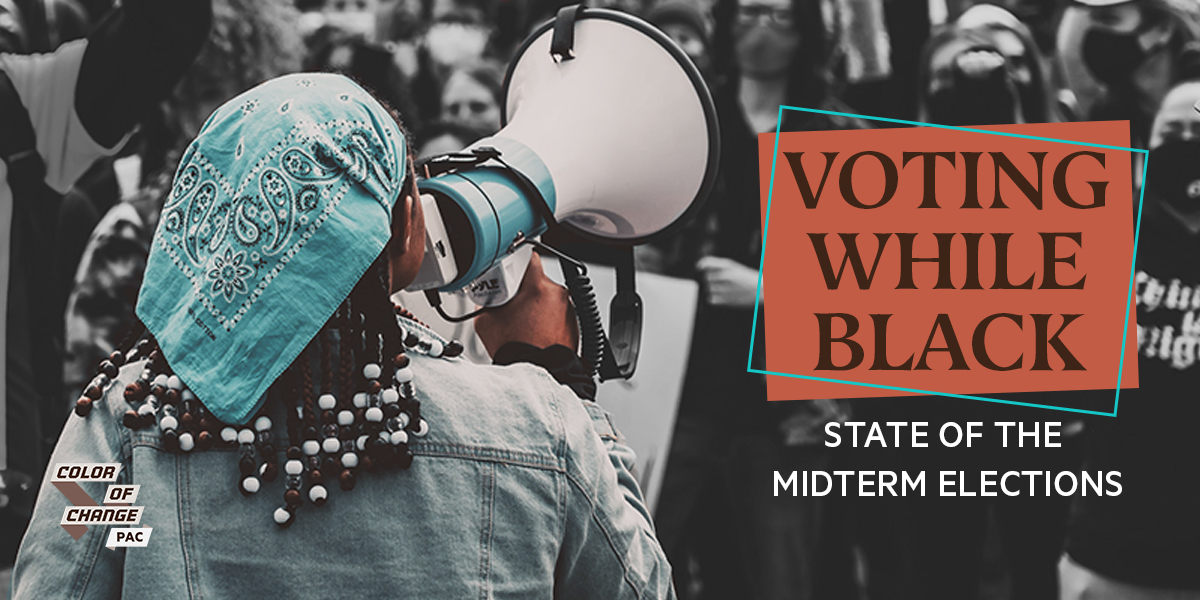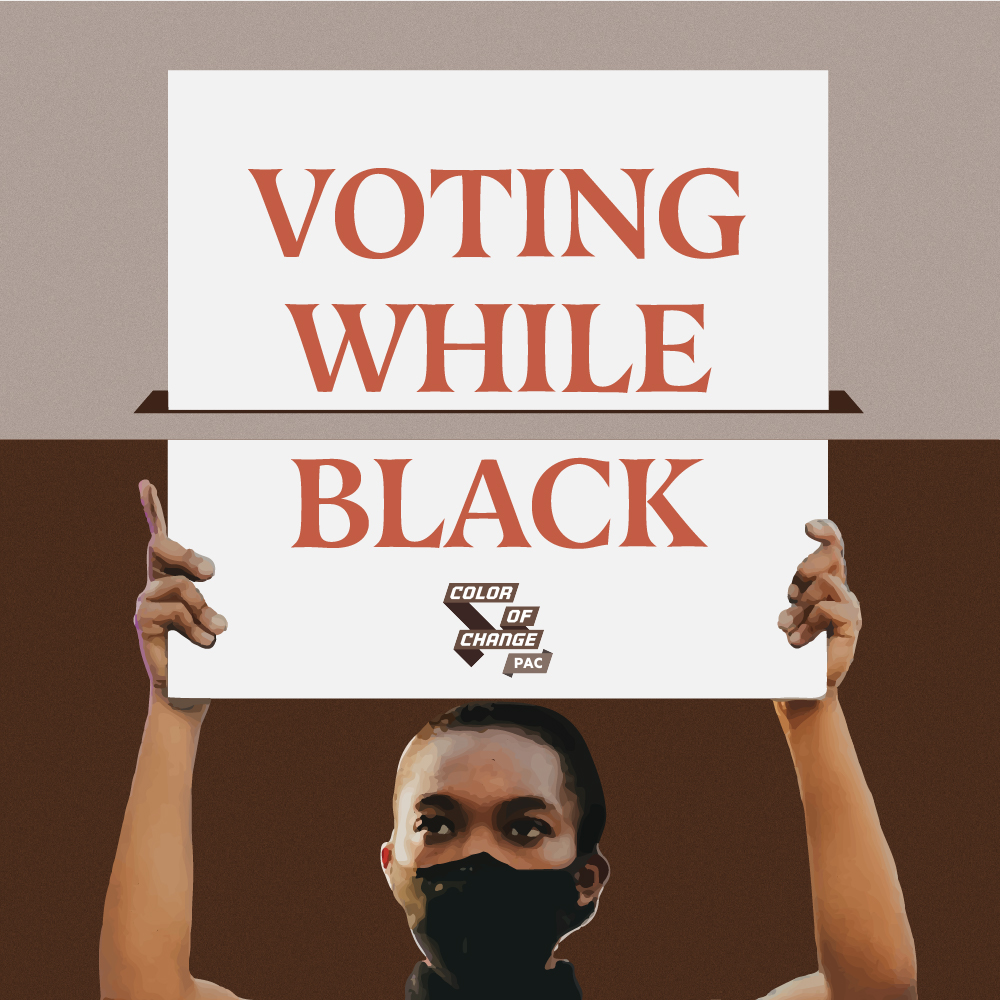
October 2022
Check your voting status, make a plan before Election Day, Tuesday, Nov. 8
Color Of Change contributor report

In 2020, pro-democracy activists and local organizers helped make voting more accessible to a wider range of people, including expanding early voting as well as options for mail-in voting and neighborhood ballot drop boxes.
The result: Increased voter turnout, Democratic control of both houses of Congress and President Joe Biden, a Democrat, in the White House.
Despite those gains, Ernie Britt is keeping an eye on the upcoming midterm elections because of a sharp backlash to expanded voting rights in Republican-led states — and former President Donald Trump’s ongoing campaign pushing the lie that the 2020 election was stolen.
“I’m concerned about Republican efforts to restrict access for Black voters — removing ballot drop boxes from our communities, threatening vote-by-mail programs, changing who counts our votes, and increasing criminal penalties for statistically insignificant, mostly imaginary ‘voting irregularities,’ ” said Britt, a campaign director for Color Of Change, the nation’s largest online racial justice organization.
That’s why Britt and others want Black voters to check their registration status, bone up on new voting laws in their state, find their polling places and make a plan to vote ahead of Election Day, Tuesday, Nov. 8.
Color Of Change has an online tool, Voting While Black, that can help people nationwide find out where and how to register to vote in the midterm elections. It also includes information about issues and candidates in key state and congressional races, helping voters make informed decisions.
The Brennan Center for Justice, a nonpartisan law and policy institute, also has an updated roundup of new state elections laws passed in 2021-22.
Experts say attempts to suppress the Black vote are as old as the nation, ranging from poll taxes and literacy tests to violence against Black people who registered or tried to vote.
A cornerstone of the modern Civil Rights Movement, protections for Black voting rights became law with the Voting Rights Act of 1965. But a U.S. Supreme Court ruling in 2013 allowed states with a history of suppressing the Black vote to change election laws largely without federal oversight — even if it harms Black voters.
During the last two years, 21 states have approved laws making voting more difficult, according to the Brennan Center. During the same time, seven states have passed laws that open the door to partisan interference or threats to “the people and processes that make elections work,” according to the Brennan Center.
Meanwhile, far-right activists and election deniers are running for local offices that oversee elections or volunteering to serve as “poll watchers” to aggressively monitor voting in search of evidence that confirms their theories about rigged elections.
Britt said the backlash shows conservative politicians and their allies clearly fear the power of the Black vote.
Black voters helped resurrect Biden’s sagging campaign during the Democratic presidential primaries in early 2020 and Black voters powered the party’s U.S. Senate candidates to victory in key states like Georgia and Michigan, giving them a razor-thin majority.
“Republican elected officials are already working overtime to undo our progress,” Britt said. “They’re doubling down because our votes are powerful. Increased voter turnout can move the needle. Just look at Georgia,” a GOP stronghold that went for Democrats in 2020.
“The trend is clear — the demographics in these states are becoming less white and more politically engaged, threatening the GOP’s power,” said Britt. “But strong federal action is needed to protect our freedom to vote this cycle and beyond.”
Adisa Muse, a former political campaign organizer based in Virginia, said Black people need to be vigilant to protect their voting rights.
“It only took a generation to take voting for granted,” Muse said. “My parents had to remind me that, when they went to college, they had protests to ensure that everyone could vote,” but the tradition of involvement seems to be declining in younger generations.
“If you exercise your franchise vigorously and consistently, it becomes harder to take away.”